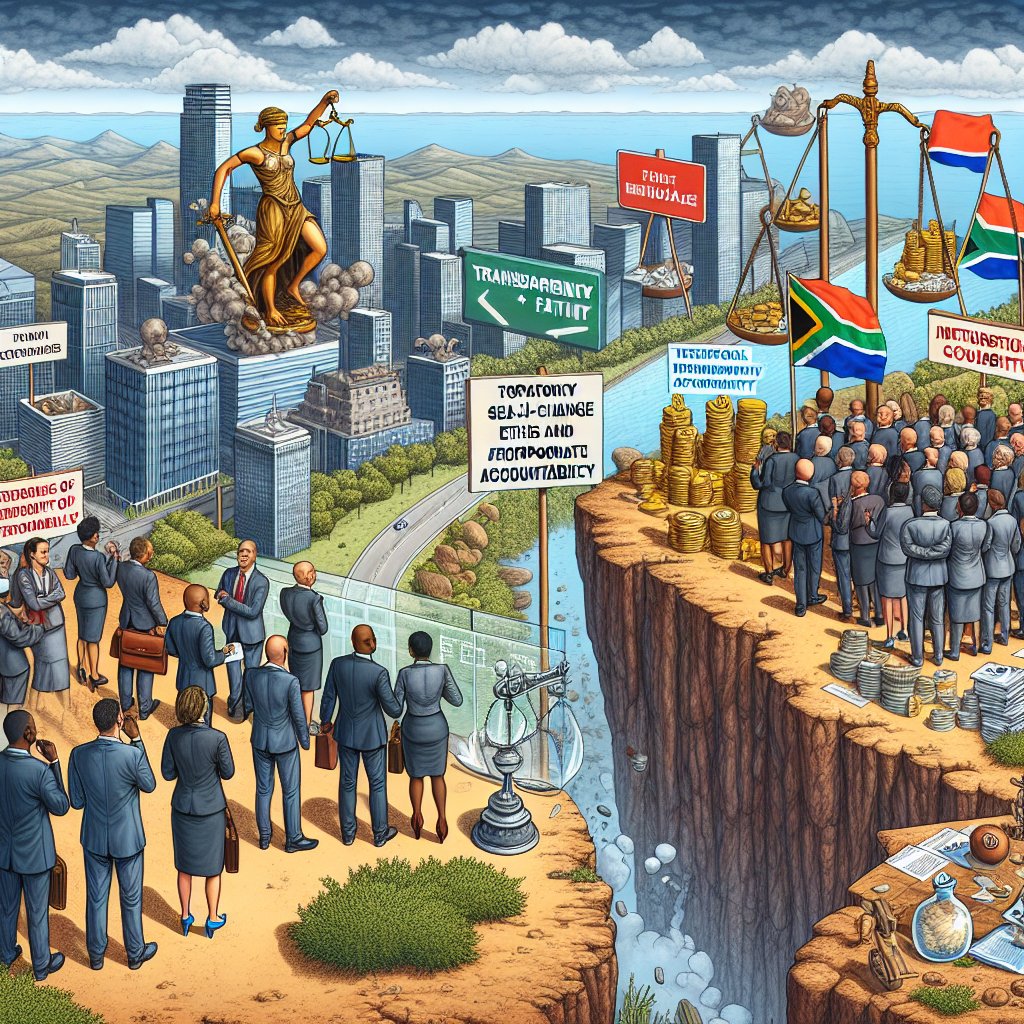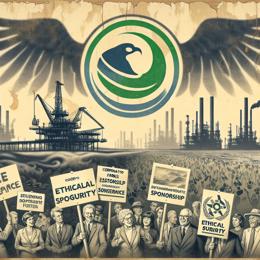Content created by AI
The Unsettled Age of Accountability: Corporations Under Scrutiny for Financial Rectitude
The South African business landscape has been abuzz with discussions about corporate integrity and the responsibilities companies have towards ethical financial practices. At the forefront of such discussions is the notable case of multinational consulting firm McKinsey & Company, which has recently made headlines for repaying controversial consultancy fees in South Africa. This move has led many to question the state of corporate accountability and whether we are truly entering an era where businesses cannot eschew their moral and financial commitments.
Susan Comrie, speaking in a discussion moderated by Davis, underscored the pressing need for companies implicated in ethically ambiguous dealings to step forward, make full disclosures, and return improperly obtained funds. According to Comrie, SAP, a significant software company, explicitly promised in 2018 to review all public sector contracts and to disclose business development partnerships related to those contracts. Despite these pledges, they have seemingly retreated from this commitment.
The list did not end there. Comrie named other companies - Liebherr, Neotel, PWC (PricewaterhouseCoopers), T-Systems, and Dentons - that have been associated with questionable contracts and financial practices, especially concerning state-owned enterprises like Eskom and Transnet. Additionally, the global consulting firm Bain & Company and CRRC, a Chinese rolling stock manufacturer, were also mentioned for their involvement in inflated locomotive contracts and subsequent kickbacks.
These revelations point towards a broader culture of impunity and a need for institutional change. The dialogue emphasized that while McKinsey's repayment is a laudable step, it serves merely as the initial sprint in a marathon towards broad-spectrum corporate accountability.
The call for restitution is not just about retrieving funds but encapsulates a larger demand for transparency and ethical business conduct. The overarching sentiment is that these enterprises must conspicuously illustrate their commitment to straightforward dealings and the repudiation of malfeasance. The stakes are high, not merely in terms of financial rectitude but also concerning public trust and corporate legitimacy.
The pressure for corporate transparency and accountability resonates with broader efforts to tackle white-collar crime and corruption globally. South Africa, with its unique challenges and ongoing fight against graft, has become something of a microcosm for these universal issues. As such, the actions of these firms will be closely watched by both national and international observers, reminding companies everywhere that the eyes of both the law and the public are vigilant and expectant.
Reflecting on the discourse, Davis reiterated the overarching query, "Are we indeed witnessing the age of accountability?" The implications of such an era are profound, suggesting a seismic shift in how businesses navigate their financial dealings and engage with society at large. If the answer is affirmative, McKinsey's repayment may be the harbinger of a new normal, where restitution and probity become expected standards rather than exceptions to the rule.
In summary, as South Africa treads the path toward corporate transparency, it has become clear that claims of accountability must be supported by tangible actions. Firms listed by Comrie now face the public's await for a response that demonstrates a genuine commitment to upholding ethical standards and contributing to the financial rectitude necessary for a just and equitable society.










